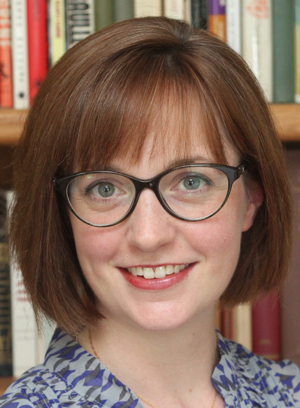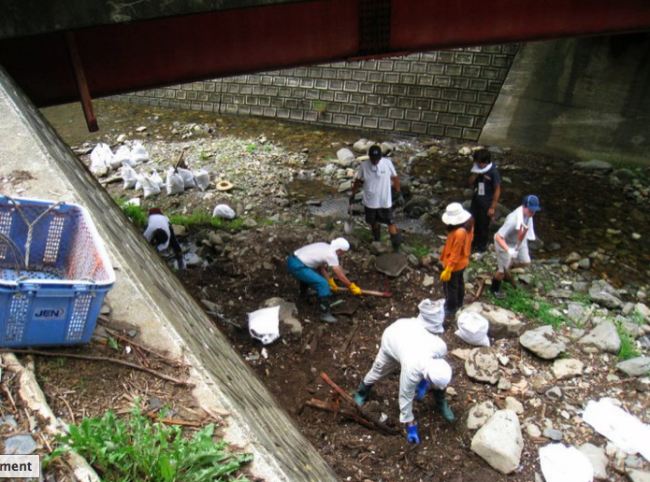Home » Articles posted by Luis Figueroa-Martínez
Author Archives: Luis Figueroa-Martínez
Trinity International Hip-Hop Festival Program, April 7–10, 2016
From its creation in academic year 2005–2005 by a group of Trinity College students as a vehicle to “combat the disunity, segregation, and violence of Hartford, CT and Trinity College,” the Trinity International Hip Hop Festival always has close ties with several History majors and faculty.
One its co-founders, for example, was Jason P. Azevedo ’08, currently a career U.S. Department of State Foreign Service Officer specialized on Africa and Brazil.
Since 2009, History and International Studies Assistant Professor Seth Markle has served as the main academic advisor to Trinity Chapter of Temple of Hip Hop and annual Trinity International Hip Hop Festival.
As the coordinating group has put it, from the beginning the festival’s main strategies and goals have been using a “the historically education-oriented and politically revolutionary medium — Hip Hop – and focusing on its global potency and proliferation, the Trinity International Hip Hop Festival works to unify Trinity College, the city of Hartford, and the Globe.”
This year’s program, includes lectures and panel discussions with a variety of scholars, artists, and community activists; film screenings, graffiti and photo exhibits, workshops, and performances, including Dance Event / B-Boy Battle on Friday, April 8th (7pm–2am), the Saturday April 9th (8pm-2am) Hip Hop Concert, featuring Rakim and several other MCs and DJs. The festival ends on Sunday, April 10th with a DJ showcase and the Iron Poet Slam Competition.
You can find the Festival’s FULL PROGRAM here: 2016 Program for the Trinity International Hip Hop Festival – We hope to see you there!
Procedures for 2014–2015 Senior Theses
Students writing senior theses in the History Department enroll in History 498-01 during the Fall semester. This course is a senior thesis research seminar taught by Prof. Darío Euraque, Chair of the Department. In the spring, students work independently to complete the researching and writing of an historical paper of up to 150 pages. A public presentation of the theses will take place in Seabury 215 on Thursday, May 1, 2014.
Senior Thesis Application Procedure
All juniors who would like to write a full-year senior thesis during the senior year must submit a thesis proposal. Applicants will be notified in writing of acceptance by the Department Chair by the end of the Spring semester. (more…)
New Book on the African Diaspora by Prof. Euraque
Professor Dario A. Euraque, History Department Chair and Professor of History and International Studies, published his fifth book in Spanish this past August. He co-authored the book with Honduran historian Yesenia Martínez, former Director of the Historical Research Division of the Honduran Institute of Anthropology and History, and former Director of the Honduran Center for Research and Documentation at the National Archive of Honduras.
The book is titled La Diáspora Africana en los Programas Educativos de Centroamérica (Tegucigalpa: Editorial Guaymuras, 2013); in English, The African Diaspora in Educational Programs in Central America.
The photo on the book’s cover is by Professor Pablo Delano, of Trinity College’s Studio Arts Program. Trinity International Studies and English major Carolina Galdiz ’14 is currently translating the Spanish edition into English thanks to a Trinity College Faculty Research Completion Grant. The book features several additional photos from Professor Delano’s collection, which he took during his last trip to Honduras in April of 2009.
During the last ten years, the historiography of Central America has registered new contributions to the study of colonialism and the presence and ethnohistory of Africans and people of African descent in this region of the Americas. This has been especially the case in Costa Rica and Panama, followed by Honduras, Nicaragua, Guatemala, and lastly El Salvador.
Some of the most interesting studies have articulated their arguments and problematics with questions and debates associated with the literature on the African Diaspora in the Americas, in general, and with the older traditions of studying slavery in the region, including comparative perspectives with the United States.
2013–2014 Thesis Writers
2014 History Senior Thesis Writers
 The following students are writing History senior theses during academic year 2013–2014:
The following students are writing History senior theses during academic year 2013–2014:
- Robert Black – “The Behavioral Ecology of Animals in the Pacific Northwest and how it pertains to the Storytelling of the of the Native Tribes in the Region” – Advisor: Wickman
- Nicolette Chasse – “Chivalry and the family dynamic: knighthood and family in literature in medieval France” – Advisors: Elukin and Silk
- Hector Guzman – “A Land Without A State: Factionalism During the Warlord Era in China” – Advisor: Bayliss
- Michael McLean – “We Thought We Had Some Trouble Last Year: Destruction, Survival, and Community during the Civil War on ‘Indian Territory'” – Advisor: Wickman
- Emily Parsons – “U.S. Relations with the Soviet Union and Hungary in 1956” – Advisor: Kassow
- Benjamin Plumer – “Southern White Identity and Incidence of Murder in South Carolina, North Carolina, and Virginia” – Advisor: Gac
- Mollie Scheerer – “The Maya: Museums, National Patrimony, and Copán” – Advisor: Euraque
.
History@Trinity will be providing later on more information on each thesis writer and her\his project. Please continue checking our blog in the coming weeks.
Message from Our Newest Historian: Prof. Jennifer Regan–Lefebvre
The History Department is delighted to welcome our newest member, Professor Jennifer Regan–Lefebvre, whom we recruited last winter through an international search to teach a variety of courses in British and British Imperial history.
 Prof. Regan–Lefebvre earned a Ph.D. from Queen’s University Belfast in 2007 and a B.S. from Georgetown University in 2003. She has taught at the University of Exeter, the American University of Paris and the University of Cambridge, where she was a fellow, the Director of Studies in History and the Assistant Tutor at King’s College.
Prof. Regan–Lefebvre earned a Ph.D. from Queen’s University Belfast in 2007 and a B.S. from Georgetown University in 2003. She has taught at the University of Exeter, the American University of Paris and the University of Cambridge, where she was a fellow, the Director of Studies in History and the Assistant Tutor at King’s College.
History@Trinity hopes to publish soon excerpts from an interview in which she discusses in detail her research and teaching and her plans for the near future.
In the meantime, Prof. Regan–Lefebvre has kindly provided us with the following statement:
“I am delighted to be joining the History Department at Trinity in 2013 and am looking forward to getting to know students and colleagues at Trinity.
My expertise is in British and British Imperial history and I’m particularly interested in how modern Britain was shaped and affected by the British Empire.
I’ve written a book about relations between Irish and Indian nationalists in the nineteenth century and I’ve also published on the history of travel, race and racism, and the press. I am currently researching a history of the London wine trade since 1800.
In 2013-2014 I’ll be teaching a First Year Program seminar on the history of London (“London: Traditional, Modern and Global”) plus three History courses: “Modern Britain and Imperial Culture,” “Modern Britain since 1750” and “Modern Ireland, Global Ireland.”
I’m originally from Massachusetts but have lived in Europe for eighteen years. I’m very excited to be returning home to New England and am particularly looking forward to watching the leaves change on the Trinity campus this fall.”
.
NEW History & INTS Course: “Sports, Race & Nationalism”

NEW Fall 2013 History & INTS Course:
Hist. 383 \ INTS 383: Sports, Race & Nationalism
Prof. Luis Figueroa
Wed, 1:15–3:55pm
More Info @ sportshistory.trincoll.edu
This course counts for both History and INTS majors. Therefore, priority seating will be granted to them.
However, please notice that registering in this course requires prior approval by the instructor.
If you’re interested in taking this course, please use the class website’s “Contact Us” page to schedule an interview with Prof. Figueroa during advising week (April 8 – April 12).
Selected students will then be emailed the registration PIN numbers on Friday, April 12th.
Professor Greenberg returns from Teaching in China
For the 2010-2011 academic year, Professor Greenberg was in China on a Fulbright scholarship (Fulbright U.S. Scholars program), teaching at Wahun University.
Here’s an excerpt from her blog, China Chronicles: Adventures of a Hapless American in the Middle Kingdom:
“The talks were always fun. The audiences varied from English (language) majors to students of international trade and finance, but they all had good enough English to (mostly) follow my talks. The smallest group I spoke to was about 30 students but mostly they packed the room, either excited or coerced to listen to an international professor. In some cases I was the first foreign professor they had met. The faculty were more mixed in their response – in English and History departments they turned out in force while, not unexpectedly, those in finance or technology only showed up if they had to introduce me. But everyone who came was incredibly polite and kind, and usually seemed quite enthusiastic. The topics (since you asked) really ranged widely, which made it more fun for me. I was often asked to give a lecture on “The History of Race Relations in the US” which is really African American history on one foot, but I also spoke on the history of rock ‘n’ roll (probably the most fun for me – and for them – since I played all the songs), race in the age of Obama, the Great Depression, the civil rights movement, and another favorite of mine, advertisements and American culture.”
For more insight and information on Prof. Greenberg’s experience in China, go HERE.
Professor Bayliss Reflects on Japan and its Future

In the summer of 2011, Professor Jeff Bayliss traveled to Japan to assess the social, political, economic and cultural impact of the tsunami in Japan.
Here’s an excerpt from his blog: Where Does It All Go?: An Aftermath Travelogue:
“One thing that struck me repeatedly while I was in Tohoku was how the disaster seemed to still be going on for many of the people in the hisaichi, and in many different ways. I’m sure it seems odd to put it like that. The last waves have of course long since receded, and in most areas the chaotic clutter of debris has at least been cleared and placed in tremendous piles that represent the first big step in salvaging order from chaos. Even for the most dislocated of the survivors, the hinanjo shelters too are poised to become a thing of the past, meaning that they will be on their way to regaining their privacy and – with any luck – financial independence as well. And yet, the landscape in the hisaichi still looks like a bizarre moonscape in parts, with busted buildings and the naked foundations of now absent structures everywhere one looks. On the psychological level, too; survivors still seem to want to talk about the early days, whether to “outsiders” or among themselves, as if the things they experience are still replaying in their heads. Many do so in a way that suggests a sense of awe at what they witnessed, but otherwise they seem to have come to terms with it. Deep down, however, I doubt this is the case; they replay the events because they are still searching for something in them, some element of meaning, perhaps, that once found will allow them to relegate March 11th and its aftermath to the realm of memories that don’t have to constantly be recalled and relived – if that is possible for events of such enormity. For others, however, the need to recall and relive what they say is more like the curse we outsiders might expect it to be; they would rather forget, but can’t.”
For more insight and information, go HERE.

